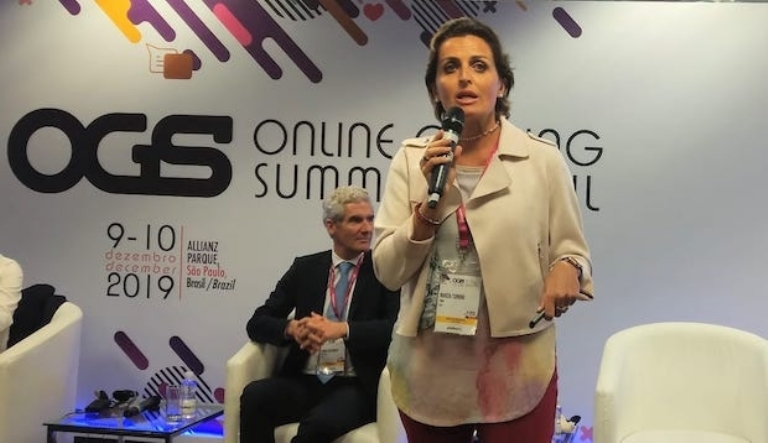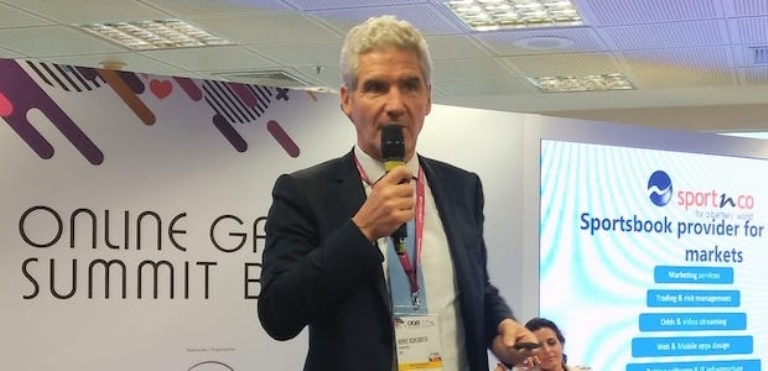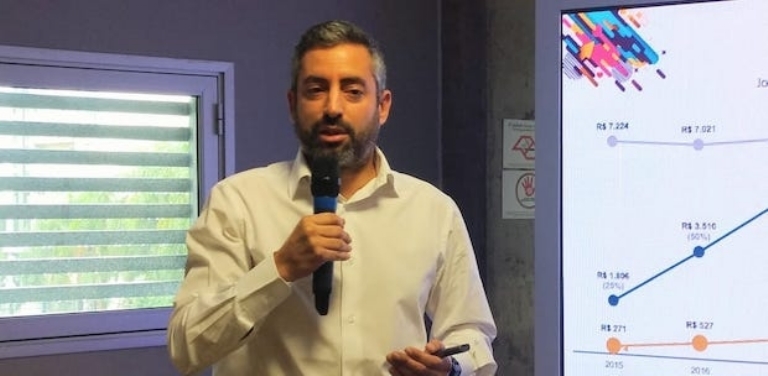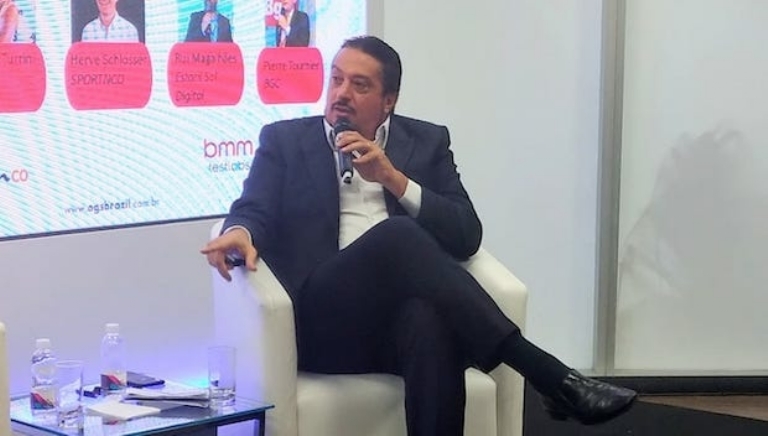

Opening the panel, Trafane stressed that the purpose of the panel was to showcase successful cases from experiences in regulation, physical operation, certification and online sector. “They will be plural visions of what can be a regulation in Brazil.”
Turrini introduced BMM -one of the leading gaming labs in the world- who had her first experience in Australia and asked what reasons lead a country to regulate gambling, if this activity is inherent to men: “Legalizing gambling brings significant value to every actors, with benefit of the state and society. Lack of legislation and regulation is a threat especially to players. It is important to understand what Brazil wants and, from there, define directions for a custom legalization for the country.”
"When the government begins to talk about legalizing, it is important for it and the regulator to add benefits to this action. By regulating, we get rid of crime while protecting players, who are the end consumer of our activity. The macro-goals are to keep crime out of this market, to ensure that gaming products are safe and auditable offerings, as well as integrity and to curb negative effects," said BMM Testslabs executive.

"The regulatory agency must be attentive to compliance with all parameters defined in the regulation, as well as all tests of approval of equipment and systems. In addition, compliance must be very well verified by the regulator, periodically reviewing its compliance by operators,” explained Turrini, stressing that the regulator must know very well all the characteristics of the activity." Only then can the regulator act efficiently so that the sector is beneficial to the government and society while not being harmful to the operator.”
Herve Schlosser, from Sportnco, spent close to ten years to get his company certified and says it was “stimulating such a situation because it made us have the security to know that we would operate properly. Our company is a service provider for regulated sportsbooks. Working with Brazilian operators will be an honor, as we can offer a nascent market that has already become standard in regulated markets. It is very positive for the country to have federal regulation in order to integrate and standardize the operation throughout the territory. The legislation in Brazil, for now, is focused on sports betting, but I understand that complete legalization would be much more practical for the country, as everything could be standardized from a basic backbone, taking care of the particularities of each of the products of the sport gaming market,” explained Schlosser.
About mobile applications, Herve has brought some interesting data: today, 80% of online bets are placed on mobile devices, while ten years ago it was just 30%. "It's a significant change to be considered today and even more important if regulation and operators are aware that new changes will come in an even shorter time frame."

When structuring operations in Brazil, future operators should not develop everything from scratch. "There are platforms and software ready, certified and already tested by end customers, which makes it easier and therefore cheaper to start a gambling activity in the country," he added.
Rui Magalhães, from Estoril Sol Digital, brought his experience of a successful operation in Portugal. According to him, it is important for society that gambling is regulated because “it is very clear that proper legislation brings benefits to the government, from tax collection and wealth generation, as well as job creation. If Brazil wants to regulate only sports betting, which accounts for about 40% of the gaming market, it will mean that the remaining 60% will continue to be offered to society, but illegally. This is what the regulation avoids by approving all types of gaming modalities,” he said, stressing that the National Congress should unify the proposals in the Senate and the Federal Chamber and discuss it to approve all activities.
For Magalhães, in Spain the best international practices were followed for its gaming sector and the tax issue was well resolved, unlike Portugal, where sports betting was inadequately taxed, not allowing the growth of activity. In Spain, there is still about 20% of the gaming market operating in a gray zone while in Portugal it still represents 70%. "This is proof that the government must look very closely at the tax issue when regulating activity to bring the whole sector to legality," he said.

Pierre Tournier, director of BGC, said his board has a strong presence in the UK. “But our performance is worldwide, and Brazil has attracted our attention because it is possible to see that there is a lack of information for the country to regulate gaming. As an association, we understand that a good regime needs to have clear rules in every way, but with a tax model based on net revenue to attract operators' interest in a legal market,” he said.
According to Tournier, “it is not possible to understand the reasons for running with the regulation of sports betting law. It must be well-regulated, as from what was approved last year, the activity will not attract operators as they will not make a profit. What attracts an operator is a lucrative business and this is not guaranteed by law. It takes time for the regulation to work and that operators are attracted to the Brazilian market,” he said.
Then, Igor introduced his ‘Known but mandatory mistake theory’: “Politically mature countries have made harsh but corrected regulations. Building a democratic model involves consistent discussion to arrive at appropriate conditions in all respects before implementing the sports betting law regulation.” He made this point for panelists to present their views on the subject.

Turrini said that in Italy, “a country with cultural characteristics very similar to those of Brazil, the regulation of gaming was very difficult. When regulating few games, the company does not understand everything that is being offered, but investors are also lacking in information and ways in which they can implement their business. The regulation cannot be complicated. It has to be enlightening and sustainable for the segment.”
Herve commented that it is very difficult to come up with a proper decision for everyone involved. “There will always be someone unhappy, either because they did not want the release of the gaming, in the case of opponents of the activity, even as operators should exercise their actions. Transferring gambling resources is one of the tools, as has happened in European jurisdictions for the approval of sports betting. In some countries, it was only approved because the government had no funds for sports entities. But the regulation cannot stifle the operator with fees that prevent him from working,” he said.

Tournier said there is no perfect regulation. “It is the result of discussion, approval, review and renegotiations. In France, for example, we pointed to problems in regulation and yet the activity was regulated. When the government is open to suggestions before regulating, the result will be more effective,” he said. In the Czech Republic, it was agreed that each customer should be approved personally. How to do this for online operation? So far, this issue is pending in the country. That is, good decisions must be made in any jurisdiction,” he said.
Rui Magalhães commented that all countries in Europe are legalized and Portugal was practically the last to implement its framework. “We were aware of what was done in neighboring countries, but we tried to reinvent things that block the activity. This cannot be repeated in Brazil, which has so many successful examples in the world and even things that are not working. You can avoid obstacles and make a strong sector in the country. In 2020 nothing will happen in Brazil because the law is wrong and regulation will no longer be discussed," he said.
Source: GMB